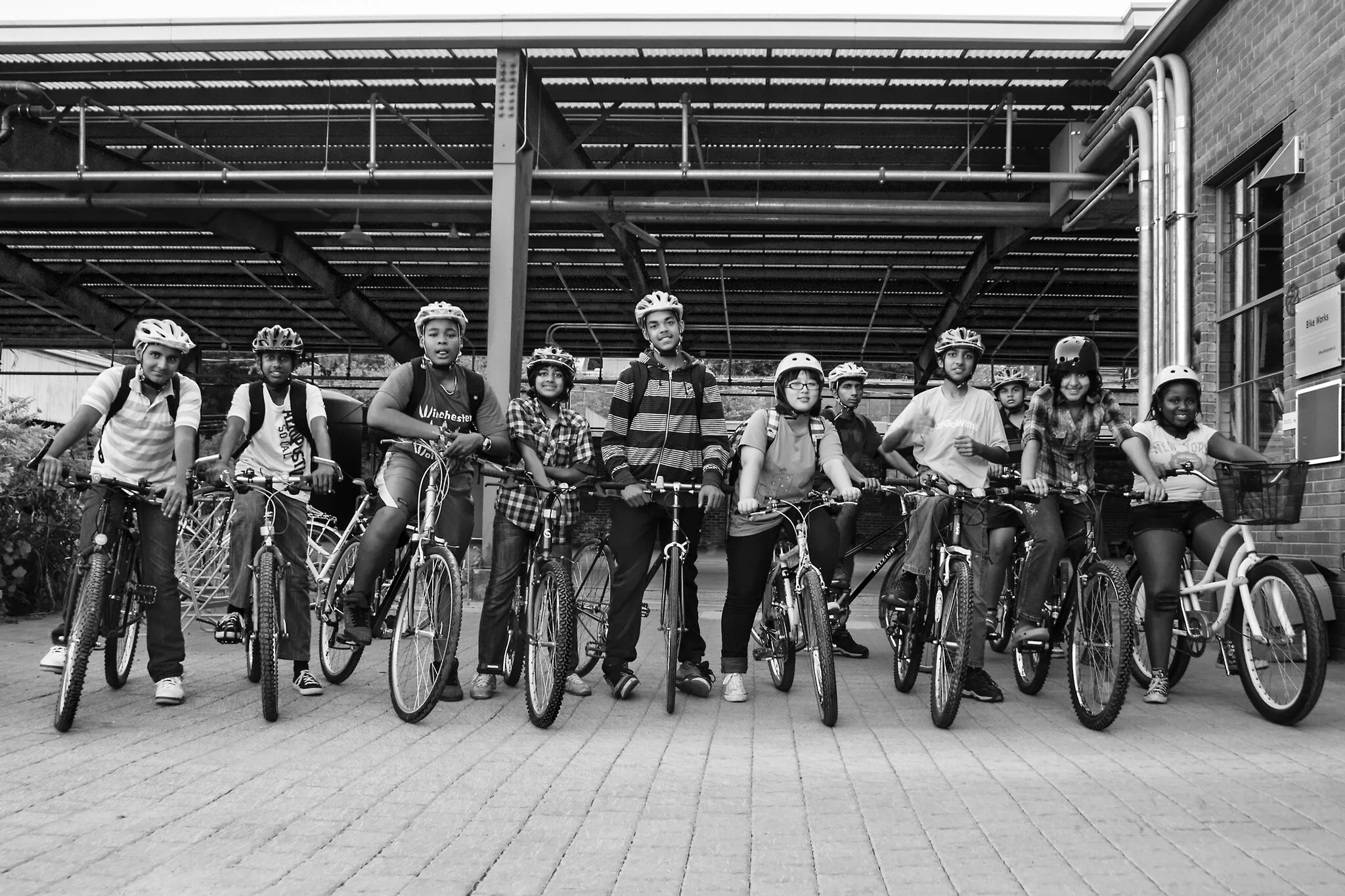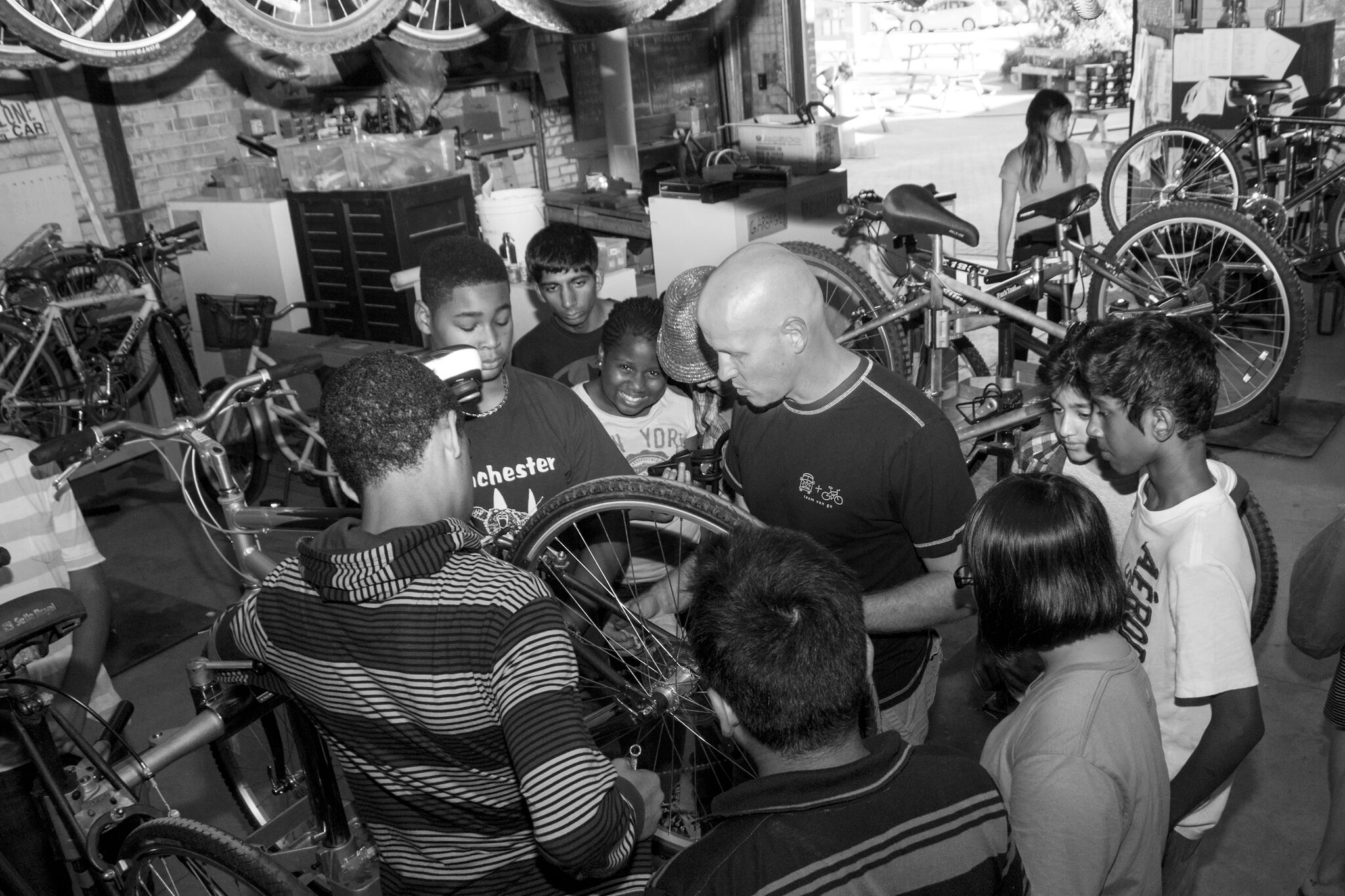PHOTO: MICHELE WEISZ
If you live in an urban city, chances are you know what it feels like to take on the daily commute. Our cities today are dirty, polluted, congested, and the costs of transit increase year after year. The social gap grows greater because of this. Neighbourhoods on the periphery become under-developed, and their residents become isolated. This problem is exacerbated in cities which welcome new arrivals regularly. Many of these newcomers come from under-developed regions or may lack adequate language skills, strangling already stretched resources in these fringe neighbourhoods. The question arises, how do we welcome and integrate newcomers into our society, without adding to traffic congestion?
PHOTO: MICHELE WEISZ
PHOTO: MICHELE WEISZ
Bikes Without Borders has a simple solution, to what seems like a complex problem. When subway plans are costing billions of dollars, and existing streetcars are packed to the brim, it seems like any palpable thinker would consider an alternative mode of transport. The Great Bike Recycle is a program developed by Bikes Without Borders to support vulnerable individuals in Toronto, giving them independence and promoting personal and social well-being.
Photo: Michele Weisz Tanya Smith, Founder of BWB.
Anyone can donate a bike, which will be refurbished by Bikes Without Borders, and given to someone in need. This not only makes a positive impact on the life of the individual, but also has the possibility to reduce the strain of the public transit system, congestion on the streets, and is far more environmentally friendly. It's also an initiative that is supported city-wide.
Photo: Michele Weisz
According to a report by the Torontoist in October 2016, a Forum Research poll recorded that 70% of Torontonians were in favour of bike lanes. This new wave of pro-bike sentiment is most evident on Bloor Street, where the bike lane serves 6,000 bikes each day, and counting. An initiative that is so widely welcomed city-wide, is surely the smartest way to integrate struggling residents.
Photo: Michele Wiesz
This is an idea which is being adopted globally. The European Commission has funded studies in an effort to better develop cities to embrace the new cycling culture. Already, cities like Amsterdam, Barcelona and Copenhagen are renowned for their bicycle friendly culture. Bike sharing programs are also on the rise, with Beijing and Shanghai hosting the world’s biggest programs, and more are opening in countries like Morocco and Argentina.
Photo: Michele Wiesz
In a world where the divide seems to widen between the rich and poor, perhaps bikes are the bridge to connect the two. Bikes Without Borders is proof that such possibilities exist. A cheaper alternative to public transport and a positive impact on the environment, it is hard to see why there would not be increased future investment and interest in cycling and bicycle programs. To read more about Bikes Without Borders, click here.










